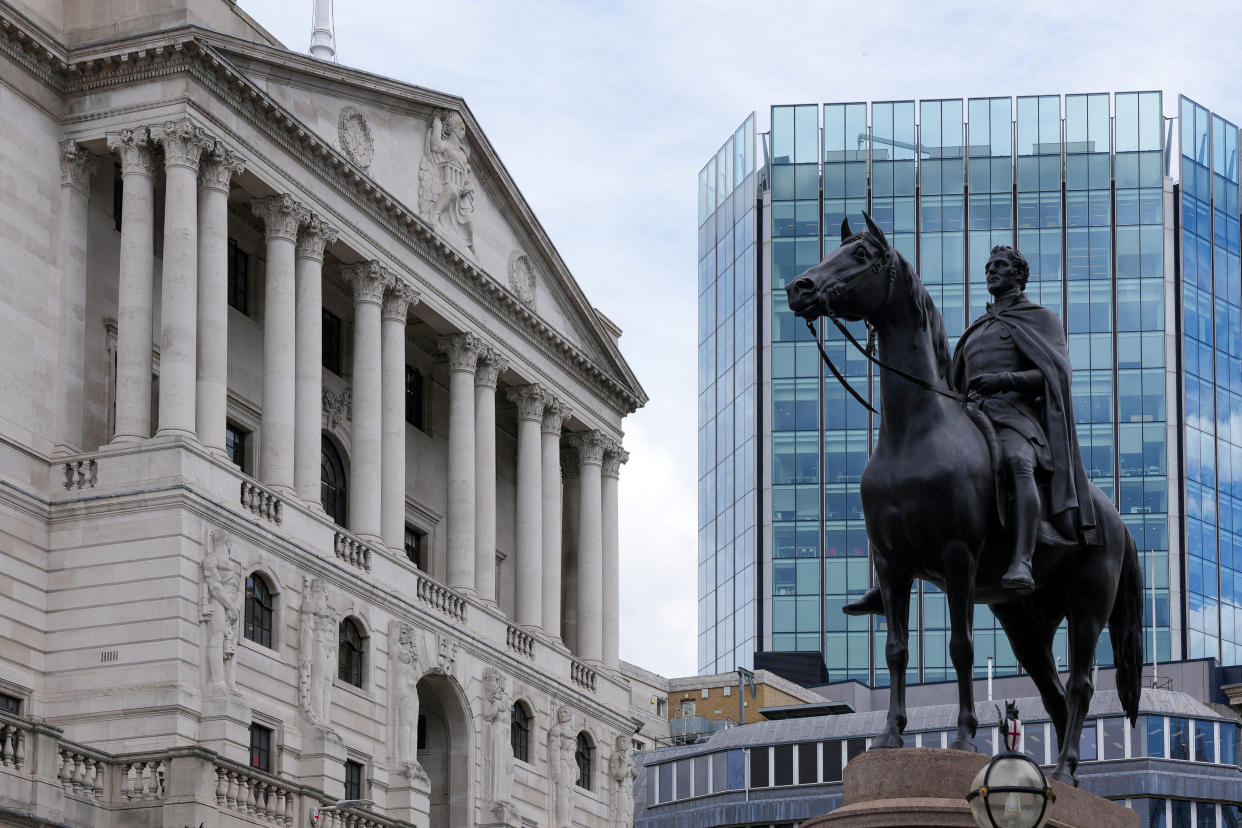UK interest rate cut more likely as pay growth slows

Starting salaries for permanent staff grew at the slowest rate in over three years last month, pushing the case that the Bank of England (BoE) should cut interest rates as pay pressures ease.
The latest KPMG and REC UK Report on Jobs revealed a continued decline in the UK recruitment sector for March, with significant drops in permanent placements and temporary billings — the most notable since July 2020.
The data signalled a fifth consecutive monthly decline in the demand for staff amid evidence of a greater number of redundancies.
Starting salaries rose at their slowest rate for over three years, whilst temporary wage inflation eased to a four-month low.
For temporary roles, the increase in starting pay was the slowest in four months, putting it below the long-term trend.
Read more: Trending tickers: Bitcoin, Tesla, Microsoft and Boeing
Neil Carberry, chief executive of the REC, argued that the figures showed it was time for the Bank of England to start cutting interest rates.
"The data here should support a decision by the Bank of England's Monetary Policy Committee (MPC) to loosen its grip on growth in the near-term future. Pay growth has slowed significantly, and is now below the survey's long-term average for new permanent roles,” he said.
Policymakers at Threadneedle Street have been reluctant to cut interest rates given the continued tightness of the labour market in the face of aggressive monetary tightening.
The BoE has been trying to bring down inflation to its 2% target without harming the economy but high interest rates have raised borrowing costs for mortgage holders who are paying more each month to the bank.
Businesses have also been with hit, with retail insolvencies surging by almost a fifth over the past year amid higher interest rates.
Read more: Rental costs set to outpace wage growth in UK
“There are still headwinds, but it’s time for the UK economy to get its groove back — and UK businesses will be ready when the Bank of England makes its interest rate cuts. This may not lead to an instant rebound, but confidence to invest will increase, improving demand, and the economic outlook should start moving in the right direction,” Jon Holt, chief executive and senior partner of KPMG in the UK, said.
The Bank of England came under heavy criticism for underestimating inflation, which led the central bank to ask former US Federal Reserve chair Ben Bernanke to review its economic forecasting.
Governor Andrew Bailey conceded in May that there were “very big lessons to learn” after the central bank failed to forecast high and persistent inflation, which reached a peak of 11.1% in October 2022.
One expected outcome is that the BoE’s “fan charts” will be replaced with “scenarios” that can be adapted to events and better communicate the different positions held by MPC members, according to Bloomberg.
The the former Fed chair is also expected to suggest the Bank of England adopt a flexible set of “scenarios” in a bid to update its forecasting process. Bernanke's proposals, are due for release on 12 April.
The BoE decided last month to leave UK interest rates on hold at their current 16-year high of 5.25% for a fifth consecutive time.
A report by the International Monetary Fund (IMF) published this Monday said that the high proportion of UK homeowners on fixed-rate mortgages means the Bank of England should be wary of keeping interest rates too high for too long.
“Most central banks have made significant progress toward their inflation target. It could follow from the discussion that, if transmission is weak, erring on the side of too much tightening is always less costly. However, over-tightening, or leaving rates higher for longer, could nevertheless be a greater risk now,” the IMF said.
However, the consensus is that interest rates have peaked and that 2024 will see the Bank start to cut rates as inflation eases.
Markets are expecting interest rates to fall to 5% by May, 4.75% in June, 4.5% in August, and 4% in November.
The Bank of England will next meet on 9 May 2024 to decide for it's next decision on interest rates.
Watch: National living wage rise could mean stickier inflation, economists warn
Download the Yahoo Finance app, available for Apple and Android.


